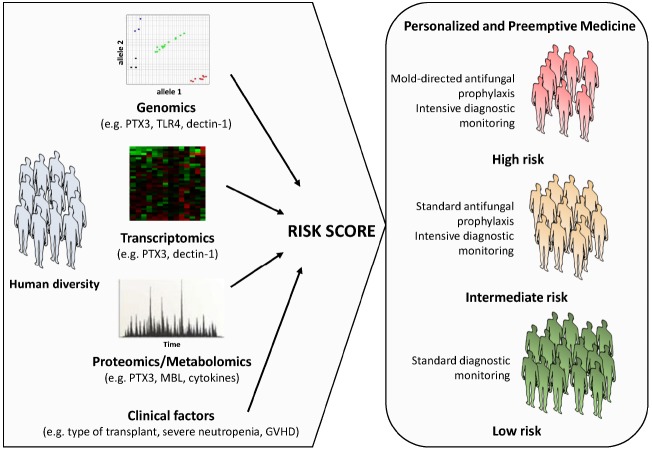FIGURE 1.
Schematic representation of a personalized medicine approach to the management of IA. A prognostic score calculated using information on host biomarkers and clinical factors is used to determine the risk of IA associated to a given patient profile. The individual aspects of the patient (and donor), including the genetic make-up and downstream activated transcriptomic and proteomic or metabolomic networks, as well as inherent clinical factors are directly considered to guide treatment planning. Although the risk category is defined at initiation of treatment (or before stem cell transplantation), it may be updated in the course of treatment according to the clinical status of the patient (e.g., development of graft-versus-host-disease, prolonged neutropenia, etc.). A number of host genetic variants in innate immunity genes (e.g., PTX3, TLR4, dectin-1, MBL, and several cytokines) have been disclosed as promising targets to use in patient-tailored strategies to optimize and target the diagnostic workup, and the antifungal prophylaxis and therapy, thereby improving patient outcome.

